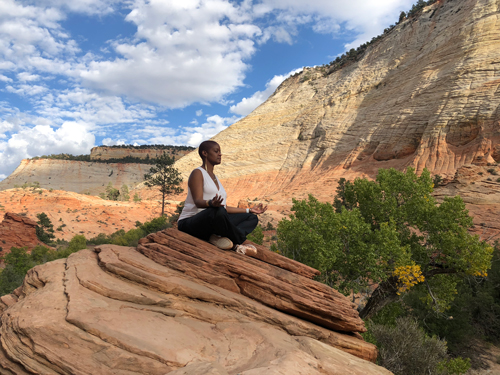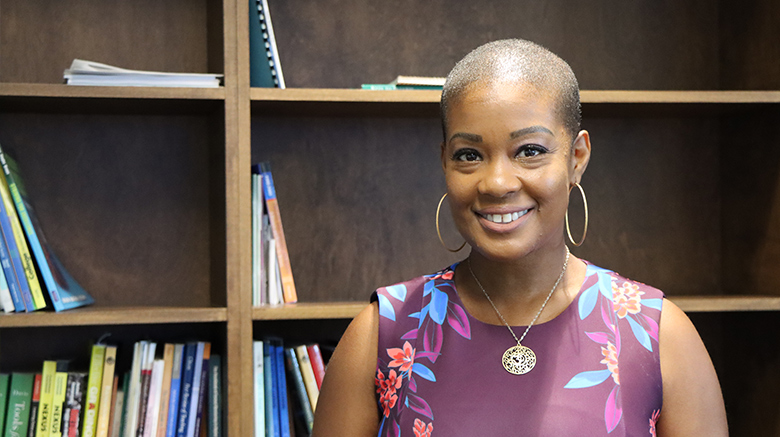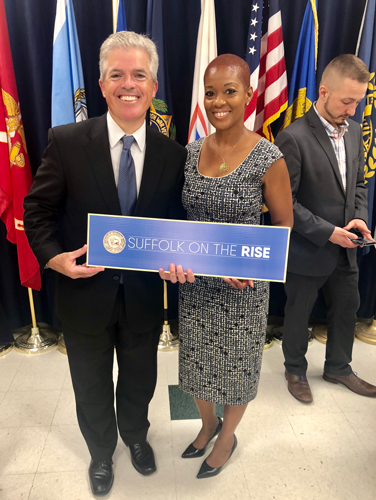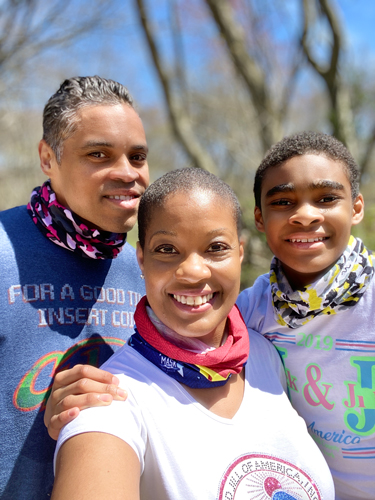On March 2, St. Joseph’s College alumna Retha Fernandez became the first chief diversity and inclusion officer for Suffolk County. Two weeks later, COVID-19 hit, forcing her to work from home. Two months later, George Floyd was unjustly killed by police during an arrest.
These challenging times have served to push the Babylon resident harder in her fight to make a difference on Long Island.
“The fact that racial justice, racial equity, is on the minds and hearts and lips of most Americans is encouraging to me because we now have a space created for us to have meaningful dialogue that’s going to lead to change,” said Fernandez, who earned a bachelor’s degree in organizational management from SJC Long Island in 2016.
“There are conditions across the country, across the state, across Long Island that have impacted black and brown people, people of color, working people, poor people for decades,” Fernandez added. “And those conditions have prevented those people from living well, from thriving, and I want to see some change.”
Bringing About Positive Change
Fernandez — who, along with her husband Wilfredo, was born to immigrant parents (hers Jamaican and his from the Dominican Republic) — recognizes the need for diversity and inclusivity among the workforce in Suffolk. And her new role allows her to help make those needed changes, so that the people who work for the county more closely reflect the people who live within it demographically.
“I know the creation of my role is a perfect example of County Executive Steve Bellone’s commitment to change and making change happen,” said Fernandez, who noted that the role of diversity officer is fairly new in local government, and that Nassau County has yet to create a similar position.
“I know the type of person that I am, and I know that, in this role, it’s not just checking a box,” Fernandez continued. “I’m actually going to do some good work.”
While Fernandez recognizes there will be plenty of hurdles to overcome in this new role, she says she’s up for the challenge.
“What I knew was going to be a challenge was the fact that within Suffolk County, we’re just starting our inclusion and diversity journey, so there’s no competency there,” she said. “My role… a lot of people don’t understand it, don’t understand the need for it, and of course may be resistant.”
 Fernandez, a certified meditation teacher who has turned to her practice for peace and comfort throughout the challenging year of 2020, expected this kind of reaction when she agreed to her new job. But she’s not letting it stop her.
Fernandez, a certified meditation teacher who has turned to her practice for peace and comfort throughout the challenging year of 2020, expected this kind of reaction when she agreed to her new job. But she’s not letting it stop her.
“There are also people I know just through conversations who are saying, ‘Yes, this is what we need. I’m glad that you’re here and I’m looking forward to what you’re going to do. How can I help you?’ So that’s encouraging,” said Fernandez, who before taking on this new role served as project manager for Urban League of Long Island and who was in charge of State of Black Long Island (SOBLI).
How to Get Involved and Make a Difference
While protests are certainly an option for young adults looking to get involved, Fernandez explained that they’re far from the only option when looking to bring about positive change.
“After George Floyd was killed, and all the protests started across Long Island, I remember seeing a lot of judgment on social media for people that were not at the protests,” said Fernandez, who received a 2020 Diversity Trailblazer Award from Long Island Business News. “People were saying, ‘If you’re not protesting, what are you doing? You’re complicit.’ I started thinking, the way that I am choosing to be an activist could be very different from the way you’re choosing to be an activist.”
Fernandez explained that activism can take place in many forms, including donating to organizations focused on racial justice and racial equity, completing the 2020 census, registering to vote, voting, and donating to, working on or volunteering for an inspiring candidate running for office at any level — federal, state or local.
“One thing I learned about elected officials, local officials, is that they are people, too,” Fernandez said. “They are just like you and I. Calling, emailing and writing letters to them is a way that you can use your voice to affect change. And you would be surprised that many of our local officials are really interested in what you have to say.”
While Fernandez’s own form of activism isn’t protesting, she did participate in one with her 13-year-old son Taylor, which she described as an unforgettable experience for him.
“Change is something you can’t just wish for to happen,” Fernandez said. “And you can’t Tweet about it, and you can’t shout about it across the dining room table with your family members. You have to put your time, energy and money behind any change that you want to see.”



